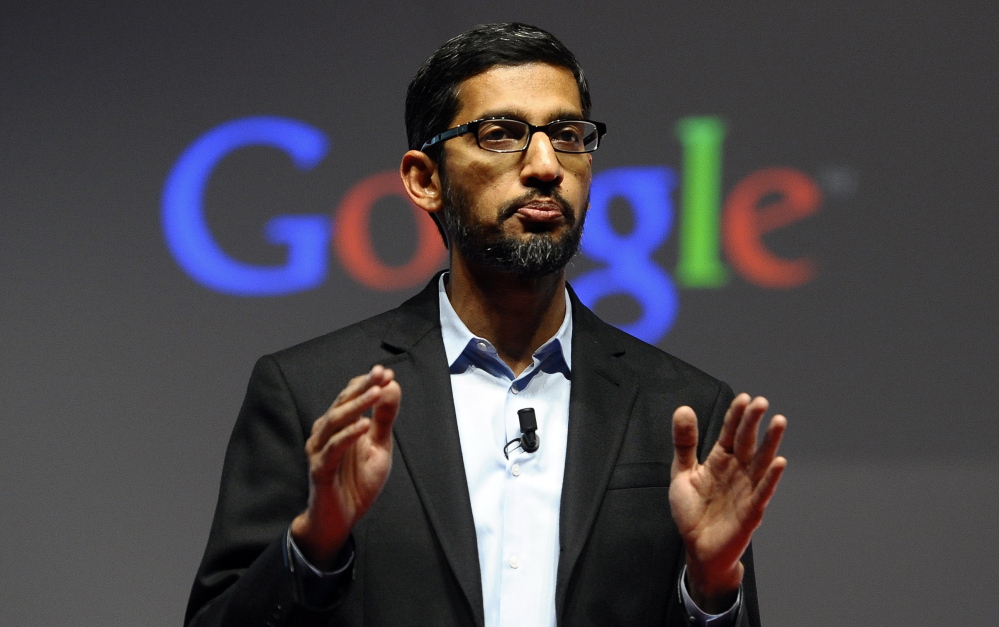It’s no secret that parents in India urge their kids to excel in math and science, believing that it’s the clearest path up the social ladder.
But education is only part of the reason Indian immigrants are reaching the top executive ranks at major U.S. corporations – most recently Google Inc.’s appointment of Sundar Pichai this week to chief executive. That followed Microsoft Corp.’s promotion of Satya Nadella to CEO last year.
Along with Indian immigrants leading companies such as Adobe Systems, Nokia, Global Foundries and Mastercard, Pichai and Nadella are evidence that a generation of Indians has benefited from upbringings in a culture that, at its best, values humility, close-knit family ties and respect for all walks of life, according to cultural experts and Indian executives themselves.
HIGHLY VALUED TRAITS
Such traits are highly valued in the corporate suite, not just in the U.S. but at any global corporation.
Mix in India’s ongoing cultural chaos, which, for those who survive it, offers real-life lessons in cooperation, teamwork and leadership, and experts say it makes sense that executives might emerge, capable of steering a sprawling workforce through rapid change.
“A very strong educational base and technical skills are key to many parts of the tech ecosystem,” said Silicon Valley venture capitalist Vinod Khosla, who co-founded Sun Microsystems. “Strong entrepreneurial skills and work ethic … and growing up and dealing with scarce resources give the Indian community an advantage.”
It’s not just top executives, either. There are 89,000 Indians living in Silicon Valley, according to the Migration Policy Institute, with most of the families involved in the tech industry. Another 86,000 Indians live in San Francisco and Oakland, Calif.
Many have jumped into the startup economy. Vivek Wadhwa, who teaches at Stanford and Duke universities and has studied Indian American entrepreneurs, found that by 2012, nearly 16 percent of startups in Silicon Valley had an Indian co-founder even though Indians represented just 6 percent of the region’s population. The figure for Indian startups is even higher in some areas, such as business software.
Venktesh Shukla, a venture capitalist and president of the Silicon Valley networking group the Indus Entrepreneurs, said even in the smallest of villages, Muslims live next to Hindus and white-collar professionals next to weavers. Languages, dress and hobbies diverge. Skukla said they were taught to see the “different” people as neither superior nor inferior.
“Treating people with respect comes very naturally to Indians,” he said. “People from homogenous societies need that as an acquired skill.”
The respect showed through small gestures when running his own software startup, Shukla said. He’d offered his ear especially to employees who weren’t talking much. He kept decision-making open-ended in favor of blanket policies. It added up to more viewpoints and greater success, he concluded.
Last year, Nadella was the first male CEO to address the annual Grace Hopper Celebration for Women in Computing. He committed a self-admitted goof onstage, saying women shouldn’t ask for raises but rather trust that they will come their way.
He acknowledged later that imputing his own experience to others was “insensitive.”
ACHIEVING A BALANCE
Balancing respect with the Silicon Valley ethos of going all out to succeed isn’t easy. But Indian tech leaders said they think expertise on both fronts gives them an edge, that competitive drive emerges naturally in a country with a billion people and limited opportunities.
“Government corruption, noise, pollution, traffic – every which way you go it’s problem, problem, problem,” Wadhwa said. “To survive, you have to be creative.”
Send questions/comments to the editors.



Success. Please wait for the page to reload. If the page does not reload within 5 seconds, please refresh the page.
Enter your email and password to access comments.
Hi, to comment on stories you must . This profile is in addition to your subscription and website login.
Already have a commenting profile? .
Invalid username/password.
Please check your email to confirm and complete your registration.
Only subscribers are eligible to post comments. Please subscribe or login first for digital access. Here’s why.
Use the form below to reset your password. When you've submitted your account email, we will send an email with a reset code.